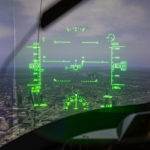The European Maritime Safety Agency has started the deployment of its remotely piloted aircraft services in support of the Italian Coast Guard to gain increased maritime awareness over the Gulf of Genova until the summer.
Leveraging on the successful campaign of last year, EMSA services will continue to enhance general maritime safety and security in the area, as well as to assist in search and rescue missions.
Protection of the marine environment is another important aspect of the operation and flights will be used to monitor whale migration within the Pelagos Sanctuary, a protected area for marine mammals.
This multipurpose operation continues to support the Italian Coast Guard in further integrating these innovative services as part of their standard operating procedures to give enhanced situational awareness. The flights can be followed remotely from four locations including the Sarzana base from where the aircraft is deployed, Imperia, Genova and Rome.
Tekever
The aircraft being used is an AR-5 Evo unmanned fixed wing aircraft and it is under contract to EMSA from the REACT consortium, comprising CLS and Tekever.
It has several features making it suitable for this service including optical and infrared cameras, a maritime radar, an AIS receiver and an emergency position-indicating radio beacon (EPIRB) antenna. Using satellite communications, the aircraft also has the capability of performing both day and night operations.
EMSA
EMSA is a decentralised agency of the EU, based in Lisbon, Portugal. EMSA serves the EU’s maritime interests for a safe, secure, green and competitive maritime sector.
Remotely Piloted Aircraft System (RPAS) services are offered free to all EU member states by EMSA. They have been developed to assist in maritime surveillance operations and ship emission monitoring and can operate in all seas surrounding the European Union. RPAS services can provide support to traditional coast guard functions, including search and rescue and pollution prevention and response.
Subscribe to the FINN weekly newsletter

